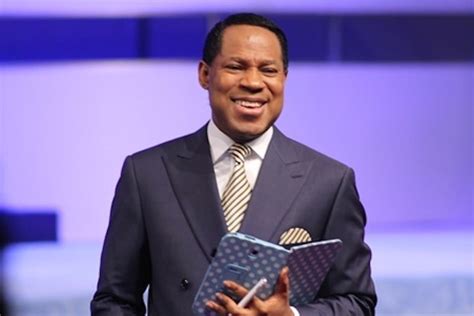A Quote by T. S. Eliot
The greatest proof of Christianity for others is not how far a man can logically analyze his reasons for believing, but how far in practice he will stake his life on his belief.
Related Quotes
How fleeting are the wishes and efforts of man! how short his time! and consequently how poor will his products be, compared with those accumulated by nature during whole geological periods. Can we wonder, then, that nature's productions should be far 'truer' in character than man's productions; that they should be infinitely better adapted to the most complex conditions of life, and should plainly bear the stamp of far higher workmanship?
Timing is everything. Tell me how a young man spends his evenings and I will tell you how far he is likely to go in the world. The popular notion is that a youth's progress depends upon how he acts during his working hours. It doesn't. It depends far more upon how he utilizes his leisure...If he spends it in harmless idleness, he is likely to be kept on the payroll, but that will be about all. If he diligently utilizes his own time...to fit himself for more responsible duties, then the greater responsibilities - and greater rewards - are almost certain to come to him.
I gave examples from my clinical practice of how love was not wholly a thought or feeling. I told of how that very evening there would be some man sitting at a bar in the local village, crying into his beer and sputtering to the bartender how much he loved his wife and children while at the same time he was wasting his family's money and depriving them of his attention. We recounted how this man was thinking love and feeling love--were they not real tears in his eyes?--but he was not in truth behaving with love.
Jesus no doubt fits his teaching into the late-Jewish messianic dogma. But he does not think dogmatically. He formulates no doctrine. He is far from judging any man's belief by reference to any standard of dogmatic correctness. Nowhere does he demand of his hearers that they shall sacrifice thinking to believing.
If you want to judge how well a person understands Christianity, find out how much he makes of the thought of being God's child, and having God as his Father. If this is not the thought that prompts and controls his worship and prayers and his whole outlook on life, it means that he does not understand Christianity very well at all.
Capitalism demands the best of every man - his rationality - and rewards him accordingly. It leaves every man free to choose the work he likes, to specialize in it, to trade his product for the products of others, and to go as far on the road of achievement as his ability and ambition will carry him.
Man is made of opinions,—of truth and error; and his life is a warfare like all other lives before him.... Man goes on developing error upon error till he is buried in his own belief.... It is the office of wisdom to explain the phenomena in man called disease, to show how it is made, and how it can be unmade. This is as much a science as it is to know how to decompose a piece of metal.







































